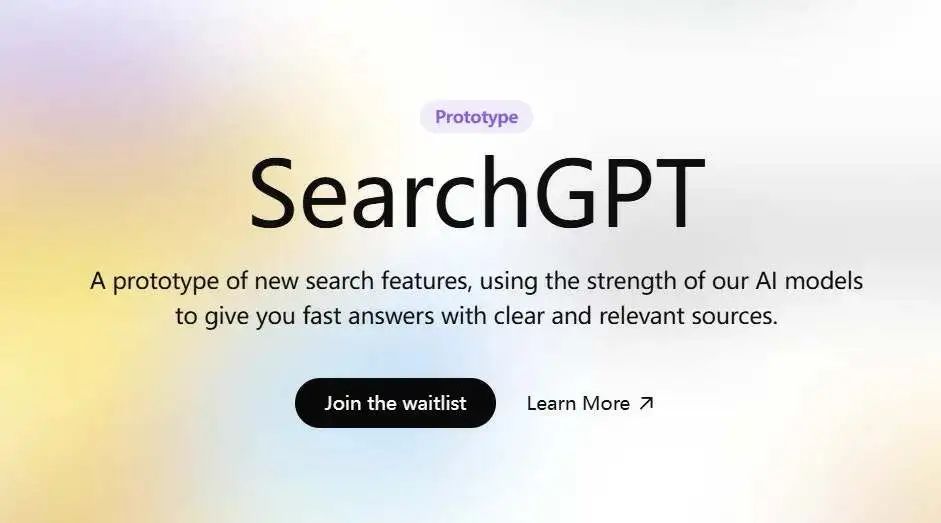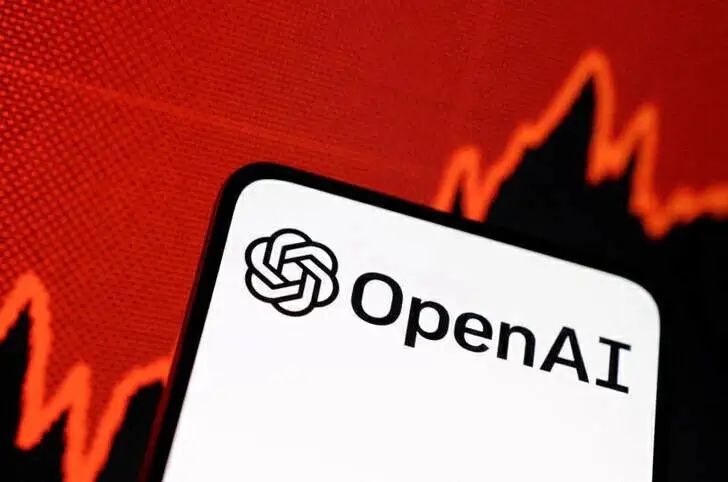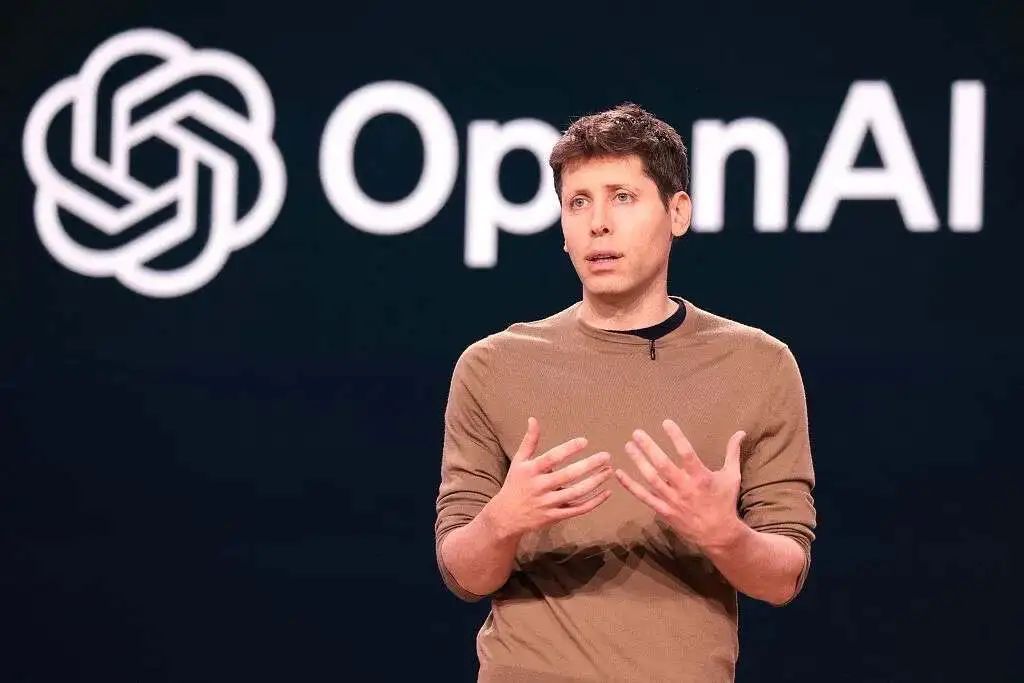OpenAI just launched SearchGPT and was exposed to have lost $5 billion. Does it only have one year left to live?
Compiled by: Heart of the Metaverse
OpenAI A few days ago, a surprising news was announced.Launched SearchGPT, an artificial intelligence search engine prototype, directly challenging Google's dominance in the online search market.
The bold move signals a major escalation in the battle for artificial intelligence in search and could reshape the way users find and interact with information on the web.
What’s new with SearchGPT
SearchGPT is a temporary prototype of a new AI-powered search feature that provides users with fast, timely answers and provides clear, relevant information sources.
OpenAI 在 7 月 25 日发文称:「我们正与一小群用户测试该功能,以获得反馈,并计划将该体验整合到 ChatGPT 中。」
The new SearchGPT prototype promises to "provide fast, timely, relevant answers with clear sources" and combines OpenAI's advanced language model with real-time network information. It also provides a conversational interface that allows users to ask follow-up questions and build context throughout the search process.
“We believe that by augmenting our models’ conversational capabilities with real-time information from the web, it will be faster and easier to find what you’re looking for,” an OpenAI spokesperson said.
SearchGPT launches at a pivotal time in search technology.

While Google has been cautiously dabbling in AI-enhanced search, OpenAI is diving in headfirst. The aggressive move could force Google’s hand, accelerate the tech giant’s AI integration plans, and potentially spark a rapid transformation of search.
Users accustomed to sifting through pages of search results may soon find themselves engaging in a dynamic, context-aware conversation with search engines.This will democratize access to information, making complex searches more accessible to average users..
However, this has also raised questions about the depth and breadth of knowledge these AI systems can truly provide, and whether they may inadvertently create false information.
SearchGPT’s focus on provenance and attribution is a smart move by OpenAI as it seeks to position itself as a partner to publishers, rather than a threat. By highlighting citations and linking to sources, OpenAI is extending an olive branch to an industry that is often skeptical of AI.
However, this move may not be enough to allay all concerns. The fundamental questions remain:If AI can provide comprehensive answers directly, will users still click through to the original source?This could lead to a major shift in web traffic patterns, potentially upending the current model of digital publishing.
Nicholas Thompson, CEO of The Atlantic, was one of a few publishers to support the move in a written statement.
“AI search will become one of the primary ways people navigate the internet, and in this early stage it’s critical to build this technology in a way that values, respects and protects journalism and publishers,” Thompson said.
Additionally, Reddit’s recent actions highlight the growing tensions in this space.
Opportunities and challenges coexist
As AI systems become more sophisticated, we may see an increase in content paywalls and legal battles over intellectual property. The outcome of these conflicts could affect the future of AI development and digital publishing.
At the same time, artificial intelligenceXiaobai NavigationThe potential disruption to the digital advertising market is also worth noting. If SearchGPT gains traction, it could undermine Google’s near-monopoly in search advertising.Not only will this impact Google's bottom line, it could also lead to a reimagining of how digital advertising functions in an AI-driven search environment..
However, OpenAI faces huge obstacles. Scaling an AI search engine to handle billions of queries per day is a huge technical challenge. In addition, ensuring the accuracy and reliability of the responses generated by the AI in real time is crucial. A few high-profile mistakes could quickly erode user trust and send people fleeing back to familiar search engines.

Perhaps the biggest challenge is striking the right balance between innovation and responsibility. As AI search engines become more powerful, so too will their influence in shaping public opinion and access to information. OpenAI will need to navigate complex ethical considerations to avoid inadvertently becoming a disseminator of misinformation or biased viewpoints.
As OpenAI began testing SearchGPT on select groups, the tech world held its breath. This moment could mark the beginning of a new era in how we interact with the vastness of human knowledge.
Whether SearchGPT succeeds or fails, its launch is undoubtedly the first shot in the fierce competition to define the future of search.
The launch of SearchGPT comes as OpenAI grapples with major financial challenges that could threaten its future. Despite significant backing from Microsoft, the company is reportedly facing a projected $5 billion loss in 2024.
Huge financial pressure
The operating costs of the AI chatbot ChatGPT are extremely high, with hardware costs alone reaching approximately $700,000 per day. This figure is expected to rise as the model becomes more complex.
OpenAI's total spending on AI training and staffing is expected to reach $7 billion and $1.5 billion, respectively, by 2024..
Those expenditures significantly outpace those of rivals such as Amazon-backed Anthropic, which is expected to burn $2.7 billion over the same period.
According to an analysis by The Information, OpenAI could lose $5 billion this year and could run out of cash within 12 months unless they raise more money.
Despite earning about $2 billion a year from ChatGPT and another $1 billion in fees for access to its language models, OpenAI’s revenue is still not enough to cover its soaring operating costs.

The company is valued at more than $80 billion, and investors hope its revenue will more than double by 2025 as corporate interest in its generative AI tools grows.
OpenAI has raised more than $11 billion in seven rounds of funding and enjoys discounts on Microsoft Azure services. Still, the company is operating at near capacity, with 290,000 of its 350,000 servers dedicated to ChatGPT.
OpenAI's financial woes have raised concerns about its ability to continue operating without additional funding.The company must secure additional funding within the next 12 months to avoid bankruptcy.
Despite these challenges, OpenAI will remain focused on advancing the development of artificial general intelligence (AGI) under the leadership of CEO Sam Altman.
The article comes from the Internet:OpenAI just launched SearchGPT and was exposed to have lost $5 billion. Does it only have one year left to live?
After the dust settled on Bitcoin and Ethereum spot ETFs, Solana became the next ETF target favored by funds and hyped. Written by: Nancy, PANews After the dust settled on Bitcoin and Ethereum spot ETFs, Solana became the next ETF target favored by funds and hyped, especially as several issuers first…